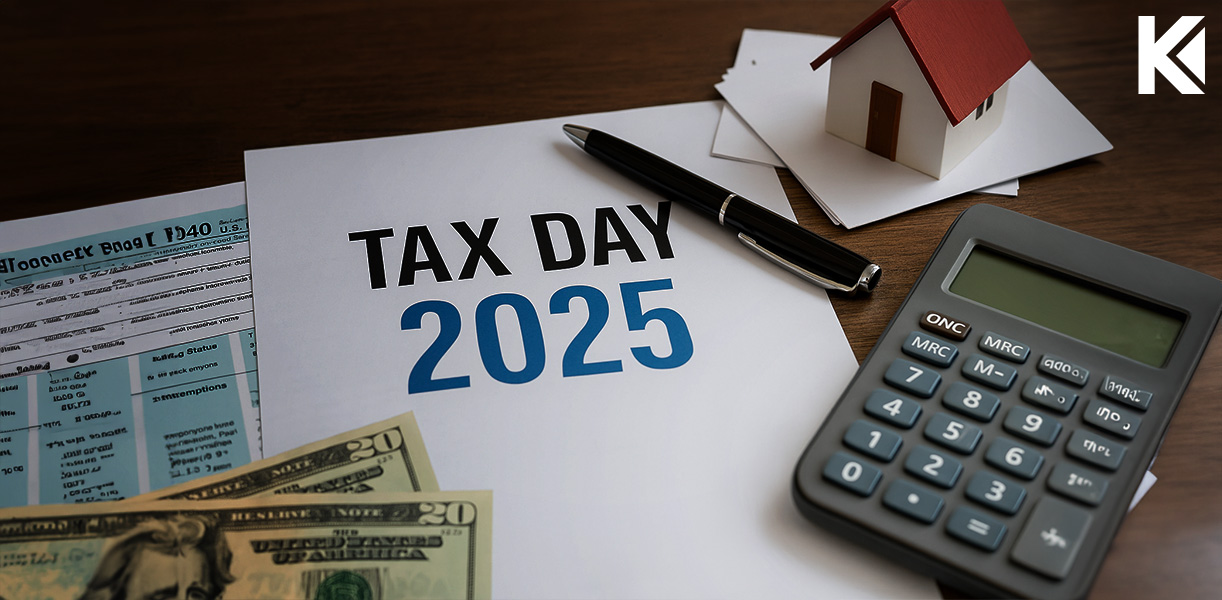Introduction
As Tax Day 2025 approaches, many Americans are reviewing their financial situation, calculating liabilities, and looking forward to refunds. However, for homebuyers and homeowners, Tax Day can also influence mortgage-related decisions. Whether you plan to buy a home, refinance, or apply for a loan, understanding the connection between your taxes and your mortgage is essential. Here’s how Tax Day can impact your mortgage plans and what you should keep in mind.
1. Tax Returns Are Key to Mortgage Applications
Lenders require documentation to verify your income and financial stability:
- Proof of Income: Mortgage lenders often request two years of federal tax returns to verify your income consistency.
- Self-Employed Borrowers: Your tax returns play a critical role in assessing your qualifying income.
- Updated Financial Picture: Having your 2024 taxes filed before applying gives lenders the most current view of your financial health.
2. Tax Refunds Can Support Your Mortgage Goals
A tax refund can provide a financial boost that supports various aspects of your mortgage journey:
- Down Payment: Many first-time buyers use tax refunds to cover part or all of their down payment.
- Closing Costs: Refunds can help cover costs such as appraisal fees, title insurance, and other out-of-pocket expenses.
- Extra Payments: If you already own a home, applying your refund toward your mortgage principal can reduce long-term interest.
3. Tax Liabilities Can Affect Mortgage Approval
Just as refunds can help, owing taxes may raise concerns during mortgage approval:
- Unpaid Taxes: Outstanding tax debt can delay or prevent mortgage approval.
- IRS Payment Plans: If you’re on a payment plan with the IRS, be prepared to provide documentation and demonstrate consistent payments.
- Debt-to-Income Ratio (DTI): High tax liabilities can affect your DTI, making you appear riskier to lenders.
4. Homeownership-Related Tax Benefits
Buying or owning a home comes with tax benefits that may impact your refund or liability:
- Mortgage Interest Deduction: You can deduct interest paid on your mortgage, reducing taxable income.
- Property Tax Deduction: State and local property taxes may be deductible, up to IRS limits.
- Points Deduction: If you paid points to lower your interest rate, those may be deductible in the year paid.
5. Refinancing and Tax Implications
If you’re planning to refinance, your tax filings can influence your approval and options:
- Income Verification: Lenders will review your recent tax returns, especially for self-employed borrowers.
- Home Equity Loans: If you plan to tap into your home’s equity, ensure your tax picture supports your application.
Conclusion
Tax Day isn’t just about settling your annual bill with the IRS—it can directly affect your mortgage plans. Whether you’re buying a home, refinancing, or planning, your tax documents play a vital role in qualifying for a mortgage and optimizing your financial strategy. By understanding the connection between taxes and mortgages, you can make informed decisions and use your tax return as a tool to reach your homeownership goals. Please contact a tax professional to review your personal circumstances.






